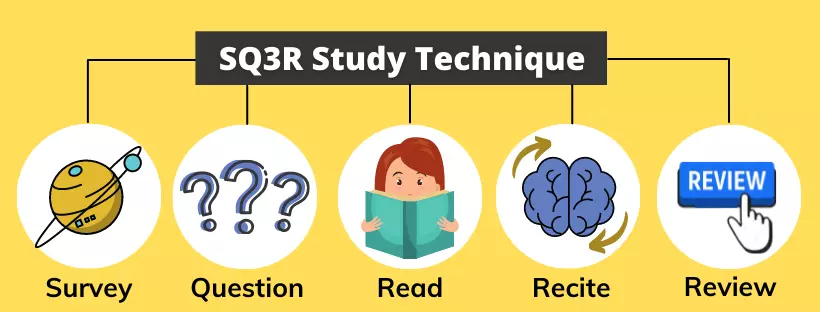
Do you ever catch yourself wondering, “Why do I do poorly on tests even though I study?” or “Why do I fail after studying for long hours?”
It’s frustrating, isn’t it? You put in all that effort, yet the results don’t match your hard work. And explaining to others that you study a lot but still get low grades can be even harder.
In this article, we’ll uncover the reasons why you might be struggling to score well despite studying hard. More importantly, we’ll share practical tips to help you overcome these challenges and boost your performance in your next exam.
These are the same tips I once shared with my classmates—many of whom studied longer hours than I did, but still ended up with lower marks.
If you find this article helpful, I’d love to hear your thoughts! Share your feedback in the comments below.
9 Unknown Reasons for Bad Grades After Studying Hard:
1. Take it easy
If you’ve failed a test or received low grades, the first step is to accept it and acknowledge that there may be areas where you need to improve. If your classmates or friends performed better, it’s possible they knew or did something you didn’t.
While it can be disheartening to get poor grades after putting in hard work, try to avoid overconfidence. Instead, focus on identifying your mistakes and finding ways to improve.
And if you’re feeling tense or upset, remind yourself: Exams aren’t meant to make you fail—they’re designed to measure your knowledge and skills.
2. Lack of understanding of the material
Many students focus only on studying for exams, often overlooking the importance of truly understanding concepts and theories—and sometimes even skipping the fundamentals altogether.
If your foundation in a subject is weak, jumping straight to advanced topics will likely leave you struggling, no matter how many hours you study. Memorizing facts isn’t enough—you need to understand the “why” behind them.
I remember a classmate who worked very hard but still got poor grades simply because he lacked a solid grasp of the basics. Instead of strengthening his foundation, he tried to memorize advanced material, which only made things harder.
To improve your grades, start by revisiting your fundamentals. Review your previous class notes, clarify concepts, and aim to explain them in your own words. A strong foundation, deep understanding, and the ability to teach the material to someone else are key to turning long study hours into real results.
And if your basics are already strong, it’s time to explore other possible reasons for your low grades.
3. You study hard not smart

You might be studying for 10–12 hours a day before your exams—but are you really studying effectively and productively? Probably not.
The goal isn’t just to put in long hours, but to study in a way that ensures you’ll remember the material and avoid confusion during the exam. Here are some tips to help you study smart, not just hard.
1. Establish a Routine and Manage Your Time Well
When exams are around the corner, it’s easy to lose your routine and let time management slip. But these two factors are critical for success.
Before you go to bed—or right after waking up—take a few minutes to plan your day. List the topics or chapters you need to cover and match them with the time you have available. Making this a daily habit can help you stay organized, avoid last-minute stress, and stick to your schedule.
2. Understand the Learning Pyramid
The Learning Pyramid is a powerful concept every student should know.
In short, it explains different learning methods and the percentage of information you’re likely to remember from each. For example, if a teacher uses only the lecture method, students typically retain just 5% of the information—while the teacher retains around 90%.
Knowing this can help you choose learning methods that boost retention instead of relying solely on passive learning.

Take a look at the above image and you’ll understand better how you can study smartly and retain more information. This measurement of retention rate might not be accurate but I hope you’ve understood the theory behind it.
3. SQ3R Study Technique

The SQ3R Study Technique is a five-step reading comprehension technique that is considered one of the best ways to study, as it helps you to read and retain the material effectively.
The steps involved in SQ3R are Survey, Question, Read, Recite, and Review.
4. Study in small chunks
If you plan to study for long hours, it is better to break it down into small chunks. One effective way is to follow the Pomodoro technique, which helps to increase productivity.
Remember, while studying in small chunks, keep your phone aside and take 10-20 minute breaks after each chunk to refresh your mind. During the break, you can either use your phone or take a short nap.
4. You might be using the wrong study material
If you want to go to London, you’ll need to take a flight to London, right? If you board a different flight, you’ll end up somewhere else entirely. I’m not sure if London is your dream destination—but you get the point.
The same rule applies to studying: stick to the material you’ve prepared (your notes) and the resources your professor recommends. Avoid relying on alternative books, as their content and explanations can differ. Studying from mismatched material can lead to confusion—and poor grades—even if you’ve worked hard.
I once had a classmate who made a similar mistake. He prepared for the board exam solely using previous years’ question papers—without going through his notes or textbooks. Unsurprisingly, he scored low marks.
Remember, question banks and past papers are great for testing your preparation, not for learning the material from scratch. Use them only after you’ve thoroughly studied your syllabus.
5. You don’t have a study plan for exams
Do you have a study plan for your exams?
If you want to study effectively and score well, you need a clear study plan. Start by making a list of all the topics or subjects you need to cover. If you already have a syllabus, even better—it will serve as your roadmap.
Begin your preparation with the subject you find most difficult or boring. For example, if math feels challenging, tackle it first while your mind is fresh.
Each time you finish a topic or subject, mark it off your list. This simple habit gives you a sense of accomplishment and motivates you to keep going until everything is complete.
A study plan keeps you organized, focused, and ensures you cover everything before the exams. But remember—reading notes and textbooks alone isn’t enough. Test yourself with practice exams and previous years’ question papers. These not only boost your confidence but also prepare you to handle exam pressure.
When your study plan includes both learning and testing, you’re far less likely to fail or get poor grades despite studying hard.
6. Lack of confidence and disbelief in yourself

If you lack confidence and don’t believe in yourself, it can be difficult to give your best in exams. You might end up second-guessing yourself, making avoidable mistakes, and getting poor grades—despite all your hard work.
What do you think about that?
Many students who know the material well and prepare extensively still underperform simply because they doubt themselves. They question their answers, hesitate too much, and lose valuable time during the exam.
The solution? Trust yourself and your preparation. Remind yourself, “I’ve studied well, and I can do this.” Stay confident in your answers and maintain a positive attitude.
And if certain friends try to distract or demotivate you before the exam, it’s best to politely distance yourself and protect your focus.
7. You may suffer from Test Anxiety
Approximately, 25–40% of US students suffer from test anxiety. Many college students experience academic-related anxiety during their collegiate careers. Researchers have found that students with test anxiety often get bad grades despite studying hard.
Do you suffer from test anxiety? If yes, here are some symptoms that you may experience:
- Chronic feelings of worry or nervousness
- Fear related to exams
- Headaches and stomachaches
- Inability to relax or feelings of restlessness
If you have confirmed that you have a high level of test anxiety, then you may need psychotherapy treatment. Otherwise, you can follow these tips for minor test anxiety.
- Have perfect time management and routine
- Don’t take any kind of family and other pressure
- Share your feelings with your teacher or parents
- Take a good amount of sleep
- Eat properly and stay healthy.
8. Your handwriting in exams isn’t clean and clear

Your handwriting can play a surprisingly important role in your exam results. Even if you know the material well and answer every question, poor handwriting can make it hard for the examiner to understand your work.
Good handwriting doesn’t mean your writing has to look artistic—it simply needs to be clean, clear, and easy to read.
Often, in a rush to finish the paper on time, students compromise on neatness, leading to messy and unclear answers. This can result in lower marks, even if their content is correct.
So, pace yourself, write neatly, and make sure your answers are legible. After all, if the examiner can’t read your work, they can’t reward you for it.
9. Cramming doesn’t work

As I mentioned earlier, some students study only for exams and still manage to score well. They don’t study regularly—they just cram the day before the test.
But here’s the truth: cramming doesn’t work in the long run. Even if you push yourself to study for 12 hours straight, cramming rarely leads to good grades. In fact, research shows that cramming increases stress, triggers anxiety, and makes it harder for your brain to absorb and recall information.
If you rely solely on last-minute cramming, you might still end up with poor grades despite all that effort.
Instead of cramming the day before, spread your study sessions throughout the term. Students who study consistently rarely need to cram—and they walk into the exam hall far more confident and prepared.
Conclusion:
In this article, I’ve shared 9 common reasons why students fail a test despite studying hard—and practical ways to overcome each one.
I hope you found these insights helpful and eye-opening.
Now, I’d love to hear from you: Which of these reasons resonates with you the most? And are you planning to try any of the tips to improve your next exam performance?
Happy Learning 🙂


I really enjoyed reading this blog post. It was very informative and I learned a lot. I think that the author did a great job of explaining the reasons for bad grades and how to prevent them from happening in the future.
Hey there,
I am glad you found my article useful. Thank you so much for appreciating my writing and efforts 🙂
You are welcome I am also glad that your article really helped me and I now have a better understanding of what is it that I can do
nice post loved it all the points are true from a student perspective ……..
yes true
Thanks for taking the time to write to me. It’s great to hear from you.
I just loved it
At least there are some teachers who understand what students go through
this information is really informative which made me aware how to exactly score good and how to improve in our studying skills
thank you so much for the best tips
Hey Harshini,
It’s great to hear that my article was helpful to you. Thank you for appreciating my effort and writing a wonderful comment.
thank you so much sir. This article is actually helpful for all the students
Sir can you tell me how can we exactly plan our studies if we have weekly exams/tests every Monday, Saturday.
Hi, I’m studying for the ASCP Chemistry exam and I have already failed twice because of my anxiety and it’s a test where you don’t know what’s gonna be on it and you have to pretty much study everything. I only have 3 more tries left. I’m not sure how to make a study plan for this or how long I should study for each chapter. It’s very discouraging to keep studying and not know what I’m doing wrong. Any tips? Anything would be helpful.
3 Tries is alot just focus and work hard you got this, now get back to studying 🙂
This blog post opened my eyes to several factors I hadn’t considered before! It’s so frustrating to study hard and still not get the grades we hope for. I especially resonated with the points about stress and distraction. I’ll definitely be taking these tips to heart in my study routine. Thanks for sharing!
Thank you so much for your kind words! I’m glad the post resonated with you and offered some new insights. It can definitely be frustrating when hard work doesn’t reflect in grades, but small adjustments can make a big difference. Best of luck with your study routine—you’re on the right track! 😊